
Collecting Event Feedback: How Free Online Tools Can Help
Event organizers face enormous pressure to gather a crowd and create memorable experiences that foster invaluable connections, all while working toward organizational goals. But their success cannot be measured simply on the execution of the event itself, rather it’s evaluated in the crucial step that follows: collecting event feedback.
Why event feedback is important
Gathering event feedback is not a box-ticking exercise; it's an crucial step that provides insights on audience engagement, identifies future opportunities, and validates the event spend.
“The ultimate value of your events hinges on the data. The data you collect from your events has vast potential to affect your business. It enables you to understand which products customers are engaging with, feeds all of your internal marketing systems, guides future marketing campaigns, and provides benchmarks for future events,” writes Nick Fugaro, CEO of Vivastream, an event data analytics company.
Collecting event feedback offers a window into the attendee experience – what worked well, what fell short, and what attendees truly valued. It acts as a compass guiding event organizers toward enhancing future experiences and demonstrates an organization's genuine interest in serving its audience better. So, it’s an important step to take in your event evaluation process. And luckily, free online tools, such as SurveyMonkey, can help.
Creating an Event Survey with SurveyMonkey
SurveyMonkey allows event organizers to create custom surveys in order to gather event feedback from attendees. The free version allows you to collect up to 25 responses for each survey. To get started, visit surveymonkey.com and click “Sign up free” and create an account.
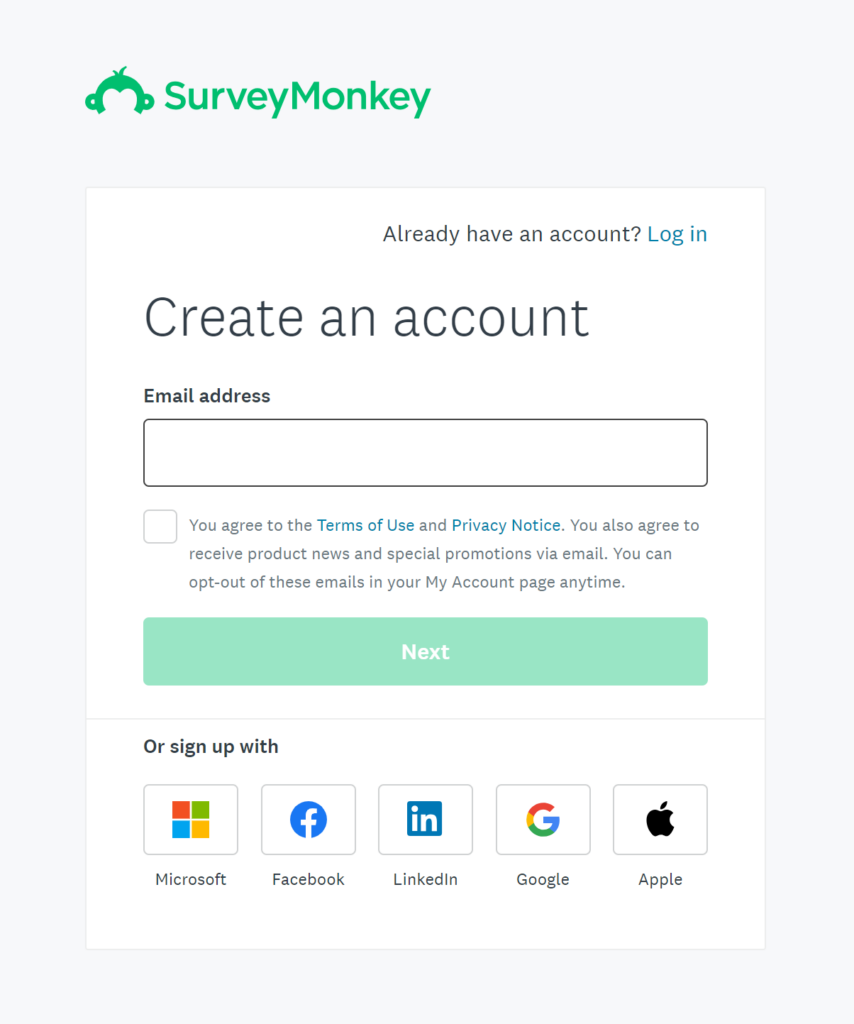
Once logged in, begin creating your event feedback survey.
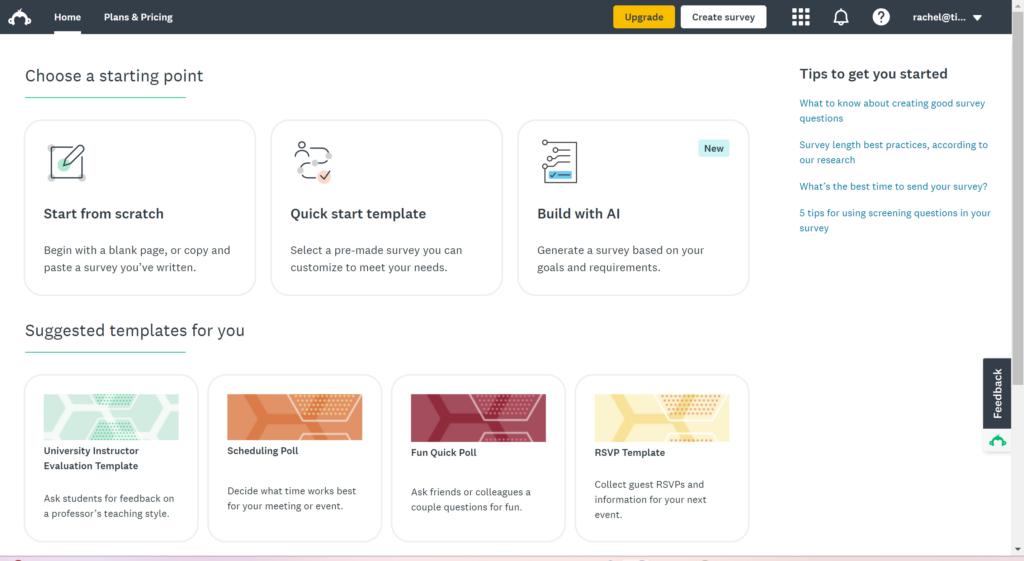
Already know the types of questions you’d like to ask? Select “start from scratch.” SurveyMonkey allows you to copy and paste questions from a separate file into a dialogue box to help develop a custom survey. Or, you can build your survey directly on the site, one question at a time. For best results, diversify the types of questions and responses to capture valuable insights from your audiences.
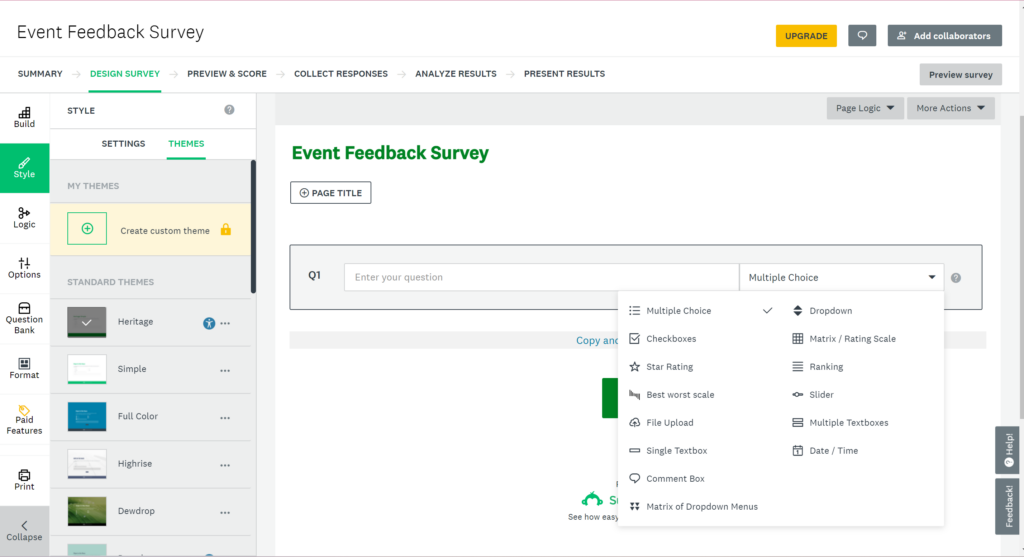
Need help getting started? Check out SurveyMonkey’s templates for helpful blueprints for effective event feedback surveys. Note that some templates may require a paid subscription, which start at $25/month. Once you’ve selected an appropriate template, you can add or customize questions and prompts to suit your event’s needs.
Want to gather feedback geared toward measuring specific goals? Select the “Build with AI” option. The new feature allows you to write a prompt that will then generate a template specific to your requirements. The tool is completely free and customizable.
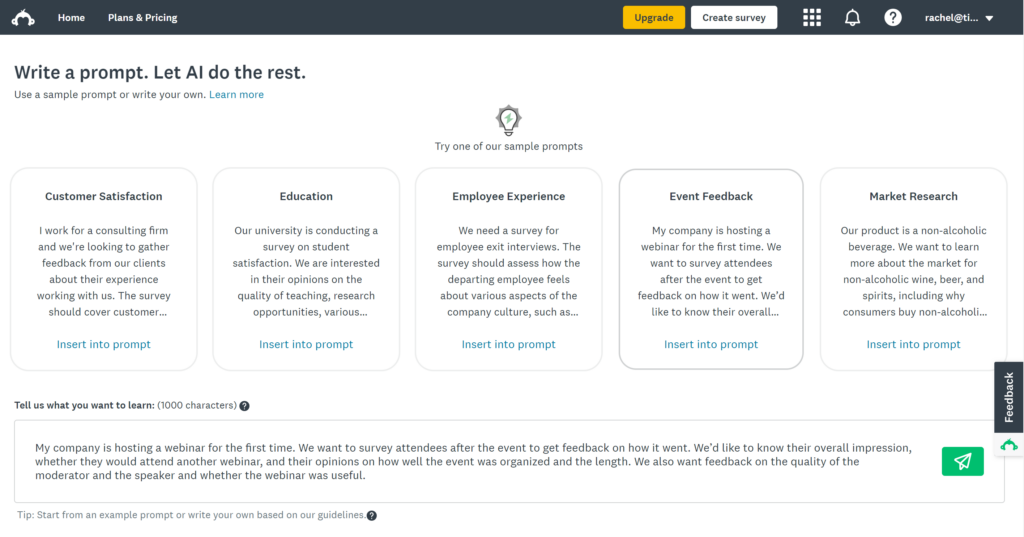
Once you’ve crafted your survey, it’s time to share. After previewing your survey in its entirety, select “Collect responses.”
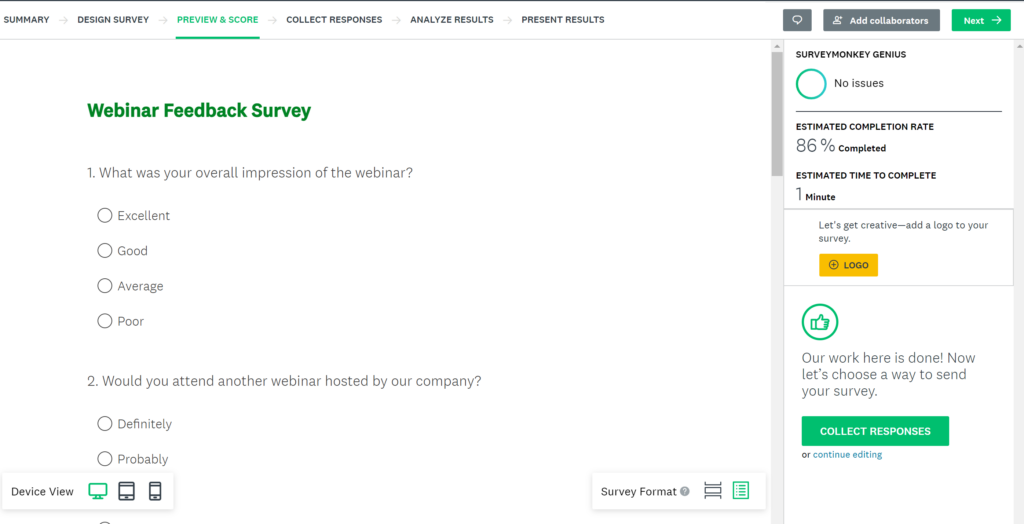
The site will provide you with two options in issuing your survey. Because you already have an active audience and mailing list of attendees, select “Send surveys your way” to generate a shareable link to your survey.
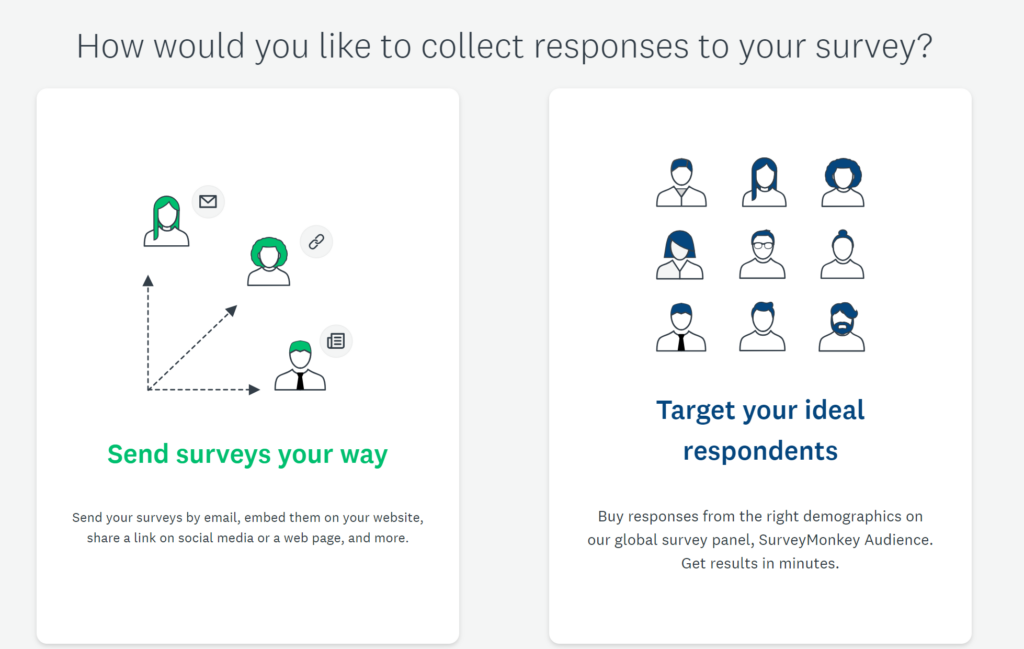
Collecting event feedback from attendees
It’s easiest to collect event feedback when your audience is most engaged. If possible, prepare the survey before the event. That way you can share the link via a QR code in an event program or on digital screens and signage on-site. Then, prompt attendees to scan and access during breaks or downtime at the event.
If you are unable to share the survey link at your event, do so as soon as possible in your event follow-up communications. If using Ticketbud, you can issue your survey through email directly through the event dashboard. Simply click on “Promotion” in the left side toolbar and select “Email Attendees.” Here, you can craft and send an email with the SurveyMonkey link.
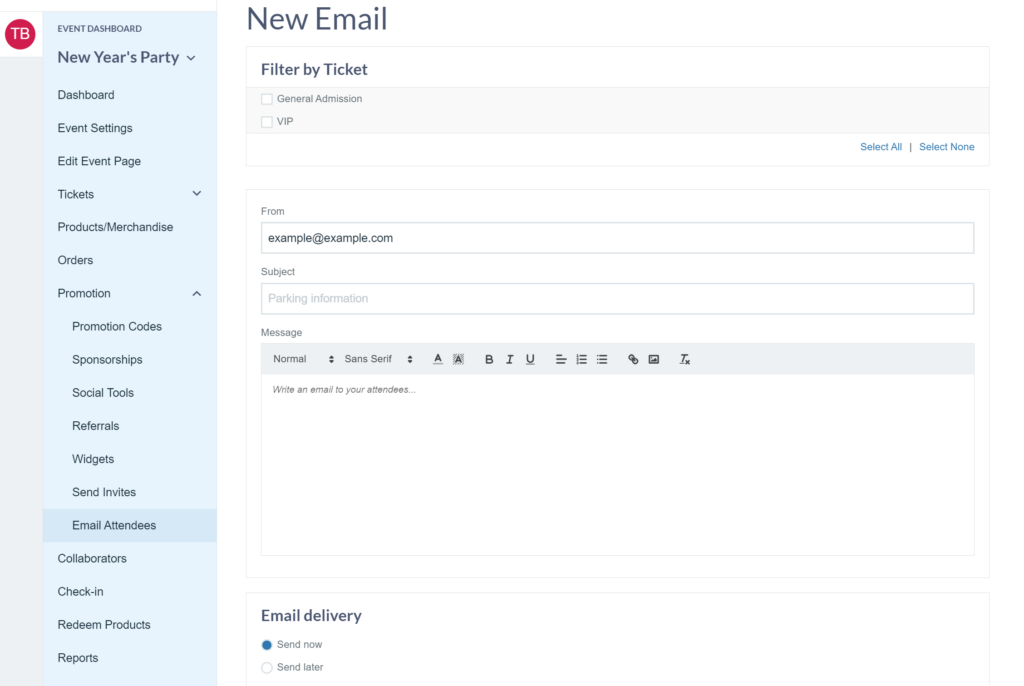
Keep in mind, Ticketbud allows you to schedule emails. So, consider preparing your post-event communications ahead of your event. This will ensure the survey goes out within a timely manner (within 24 hours of your event) and give you time to focus on other post-event duties.
Issuing your event feedback survey as soon as possible will help capture data and impressions when the content and experience are fresh in attendees’ minds. But collecting substantial event feedback can take time and persistence. So, send a follow up email after a few days if your response rate is low. You might offer incentives, such as discounts on future events or raffle prizes to encourage participation.
Evaluating event feedback
Once all of your data is collected, it’s time to evaluate your success.
SurveyMonkey has tools to analyze and present the results of your survey in ways that are actionable. View the full summary of your results or individual response; use filters or rules to compare specific segments of data; and create and export charts to share your results in a variety of formats. Each of your stakeholders brings a different perspective when evaluating event data. So, tailor your analysis and results according to those needs.
For more information on how to get the most out of SurveyMonkeys analytical tool, check out this guide.
These insights will help you communicate the success and ROI of your event to leadership and stakeholders. They will also serve as a catalyst for enhancing the overall quality of events. By identifying areas of improvement, organizers can fine-tune various facets such as content, logistics, scheduling, networking opportunities, and overall engagement, thereby elevating future event experiences.